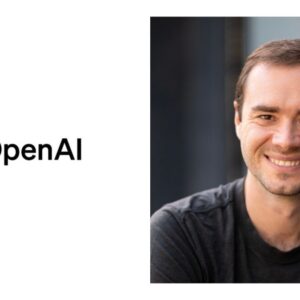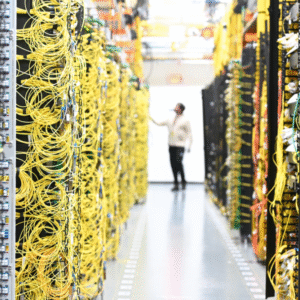The tech world is buzzing once again as OpenAI announces a revolutionary step in software development. Sarah Friar, the Chief Financial Officer of OpenAI, recently revealed their latest innovation — A-SWE, or Agentic Software Engineer. Unlike existing tools like GitHub Copilot, which help developers with suggestions and completions, A-SWE is designed to act like a real software engineer, performing tasks from start to finish with minimal human intervention.
This groundbreaking project could mark a new chapter in the future of programming and significantly change how applications are built and maintained.
What Is A-SWE and How Is It Different?
At its core, A-SWE is an autonomous AI-powered software engineer. While tools like Copilot or ChatGPT assist developers by generating pieces of code or helping with documentation, A-SWE goes much further. It’s not just a helper; it’s designed to take on full development responsibilities.

According to the announcement, A-SWE will:
- Build entire applications
- Handle and merge pull requests
- Conduct QA (Quality Assurance) testing
- Fix code bugs automatically
- Write and update documentation
Essentially, A-SWE can manage a software project from the planning phase to deployment, acting like a human engineer would — but with machine efficiency.
The Rise of Agentic AI in Software Engineering
The introduction of A-SWE is part of a larger trend in AI known as Agentic AI. This refers to AI systems that can autonomously plan and execute complex tasks over time, without needing constant prompts from a human.
With A-SWE, OpenAI is putting this principle into practice within the world of software development. The AI won’t just respond to instructions — it will reason through tasks, adapt based on errors, and handle real-time collaboration workflows on platforms like GitHub.
Implications for the Software Industry
The rise of an AI software engineer that builds and ships code has massive implications across the tech industry.
1. Increased Productivity
Startups and small teams may benefit the most. With fewer resources, they often struggle to maintain fast release cycles and high-quality code. A-SWE can fill in the gaps by working round the clock, conducting tests, resolving issues, and shipping production-ready code — all without needing breaks.
2. Cost Reduction
Hiring skilled software engineers is expensive. By using an AI that can perform the duties of multiple team members, companies can reduce overhead costs while maintaining development speed.
3. New Roles for Human Developers
Instead of being replaced, developers might find themselves in new roles, such as AI supervisors, code reviewers, or system architects. Their job will shift more toward strategic thinking, decision-making, and creative problem-solving, while A-SWE handles routine tasks.
Ethical Concerns and Challenges Ahead
Despite its potential, the development of A-SWE raises important questions about accountability, data privacy, and job displacement. For example:
- Who is responsible if the AI writes faulty or insecure code?
- Can companies trust an AI to make high-stakes decisions in production environments?
- What about the potential loss of jobs in the software industry?
OpenAI has acknowledged these challenges and is reportedly working on guardrails and oversight tools to ensure A-SWE is used safely and ethically.
External sources like MIT Technology Review and Wired offer valuable insights into the growing influence of agentic AI systems and the debate around their ethical use.
Is This the Future of Programming?
The launch of A-SWE isn’t just a technical breakthrough — it’s a cultural shift. We’re entering a time where software development might be driven by AI-first teams, and where the definition of a “developer” is being rewritten.
While it’s still early, the promise of an AI software engineer that builds and ships code is real and rapidly evolving. Whether you’re a programmer, tech founder, or curious observer, this is one trend worth watching closely.
Final Thoughts
OpenAI’s A-SWE is more than just another tool — it’s a step toward a future where software writes itself. The days of spending hours fixing bugs or writing documentation may soon be behind us. As always, with great power comes great responsibility. The tech world must tread carefully and ethically as we welcome this new kind of engineer into our development teams.
For continued updates on A-SWE and the future of autonomous coding, you can also follow trusted publications like:
- The Verge – AI
- OpenAI’s Blog
- Goldman Sachs AI Reports










3 Comments